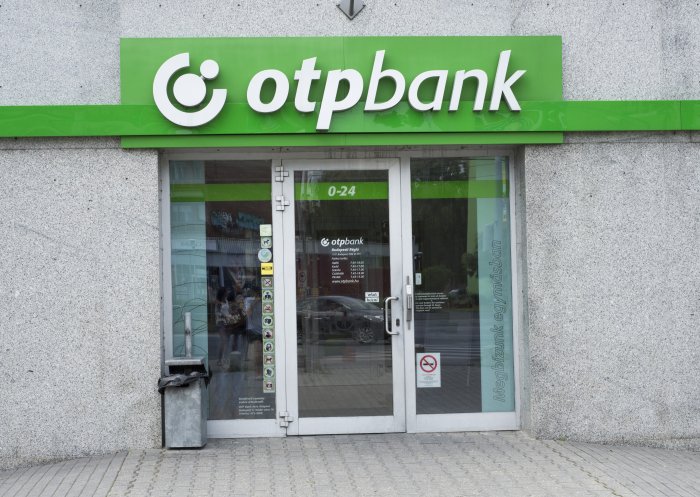OTP Q1 profit climbs 28% as risk costs plunge

jessica fejos
OTP Bankʼs consolidated first-quarter after-tax profit rose 28% year-on-year to HUF 34.3 billion as risk costs fell, an earnings report published early today shows, according to Hungarian news agency MTI.
Total risk costs plunged 68% to HUF 20.8 bln as the lenderʼs non-performing loan ratio dropped 1.3 percentage points to 17%. OTP also noted that all of its foreign businesses, with the exception of its online bank in Russia, were profitable during the period.
The profit was slightly over the HUF 32.8 bln estimate by analysts polled by portfolio.hu.
Earnings per share reached HUF 128.
Net interest income fell 10% to HUF 129 bln. Net revenue from commissions and fees rose 4% to HUF 38.8 bln.
Operating expenses edged down 1% to HUF 92.9 bln.
OTP paid HUF 16.4 bln in corporate tax in Q1, well over the HUF 2.2 bln it paid in the base period. The bank said the increase was due, in part, to the tax shield effect of the revaluation of subsidiary investments as a result of forint volatility.
OTP booked HUF 13.4 bln on the bank levy in Q1, 53% less than in the base period after the government reduced the sectoral tax. OTP books the bank levy for the full year in Q1 as a general practice.
ROE rose 6.2 percentage points to 15.5%. ROA was up 0.7 of a percentage point at 1.8%.
OTP had total assets of HUF 10.73 trillion at the end of March, practically the same as twelve months earlier. Net assets rose 3% to HUF 1.232 tln.
Stock of client loans fell 4% to HUF 6.428 tln. Retail lending stock was down 7% at HUF 4.205 tln, but the corporate loan book expanded 2% to HUF 1.963 tln.
Stock of client deposits was up 5% at HUF 7.936 tln. Retail deposits rose 6% to HUF 5.612 tln, but corporate deposits were down 1% at HUF 2.306 tln.
Looking ahead, OTP said it expects neither its Russian unit – excluding the online banking business – nor its subsidiaries in Ukraine to make losses this year. The operating environment in Russia and Ukraine will depend “to a great extent” on how local currencies behave, it added.
On the domestic market, OTP said a government home purchase subsidy scheme for families with children and a reduction in the VAT rate for new homes were already producing “positive signs” in the form of growing interest for mortgages and rapidly increasing home building projects.
Applications for subsidized home loans were up 97% year-on-year in Q1 and accounted for 44% of total applications, OTP said in the report. Disbursements were up 46%, it added.
OTP received about 1,800 applications for the subsidized home loans in Q1 and a further 1,000 in April. About 13% of all applications for new home loans were made by families with three or more children, which represent about half of the total subsidy volume, the bank said. Around 65% of applicants combined the housing subsidy with a home loan application, it added.
Looking further ahead, OTP said that another planned reduction in the bank levy as well as the elimination of a contribution lenders make on subsidized loans would save it HUF 3.5 bln next year, down from HUF 16.1 bln this year.
SUPPORT THE BUDAPEST BUSINESS JOURNAL
Producing journalism that is worthy of the name is a costly business. For 27 years, the publishers, editors and reporters of the Budapest Business Journal have striven to bring you business news that works, information that you can trust, that is factual, accurate and presented without fear or favor.
Newspaper organizations across the globe have struggled to find a business model that allows them to continue to excel, without compromising their ability to perform. Most recently, some have experimented with the idea of involving their most important stakeholders, their readers.
We would like to offer that same opportunity to our readers. We would like to invite you to help us deliver the quality business journalism you require. Hit our Support the BBJ button and you can choose the how much and how often you send us your contributions.


.png)







.png)
